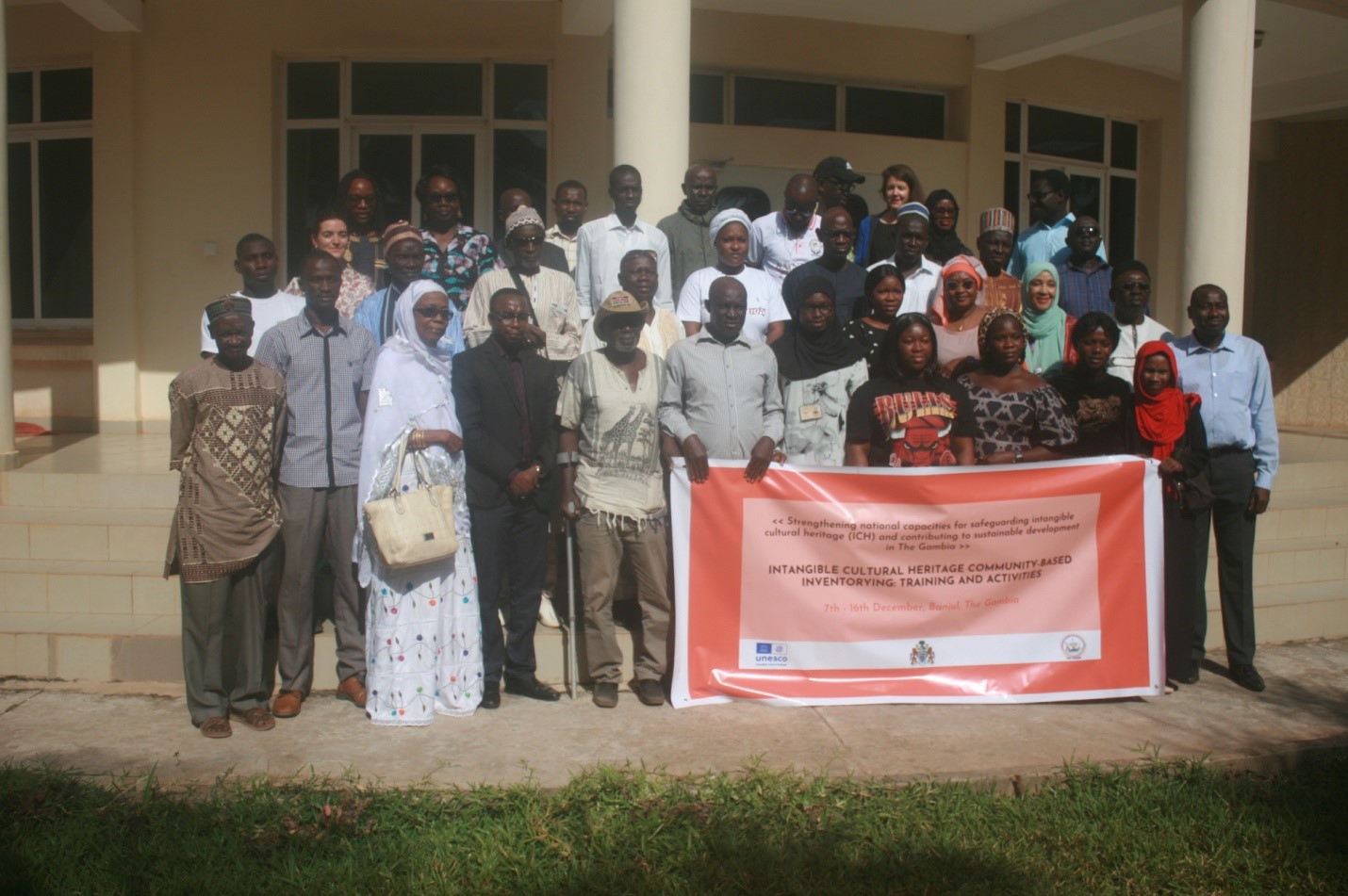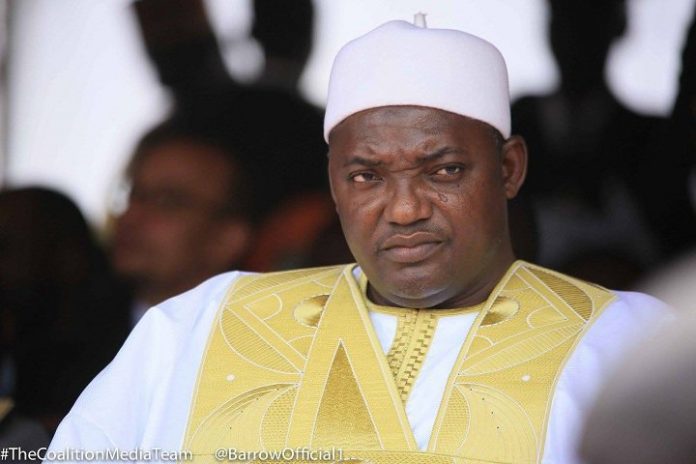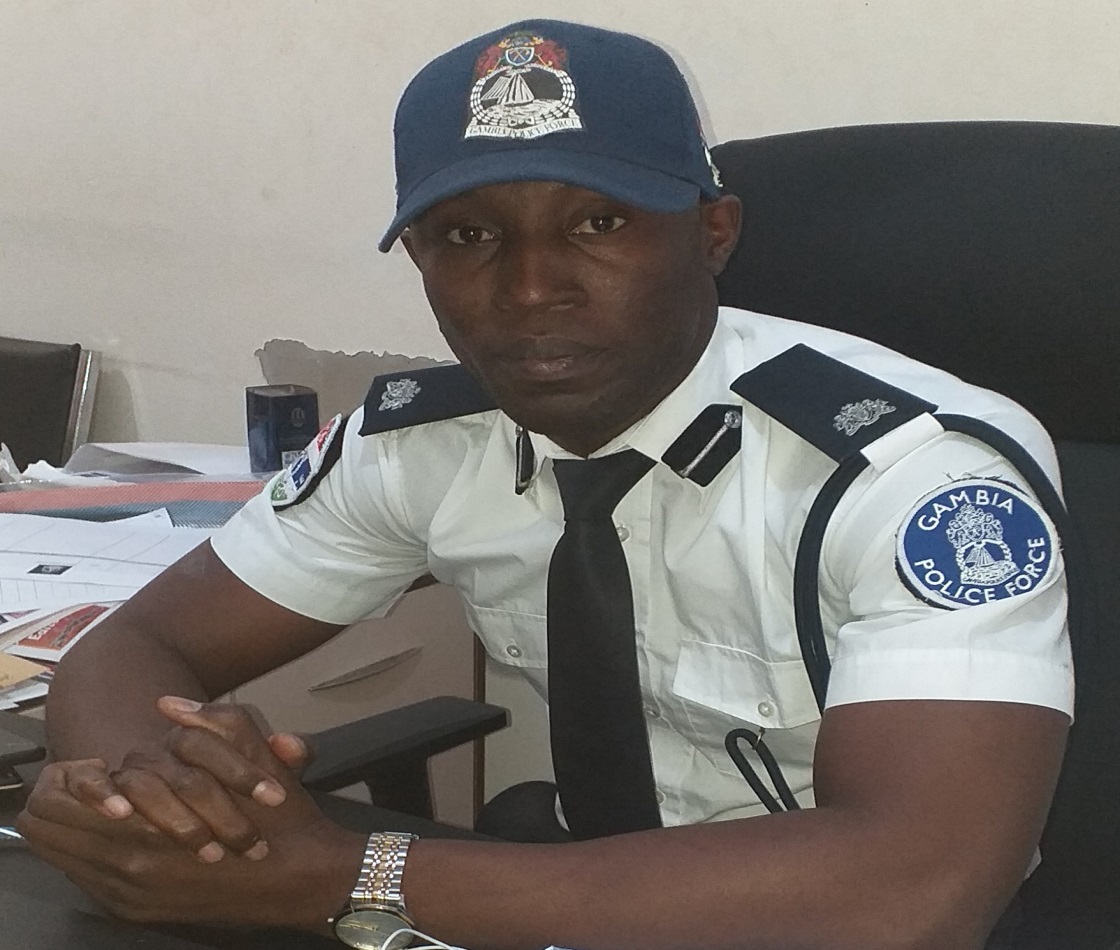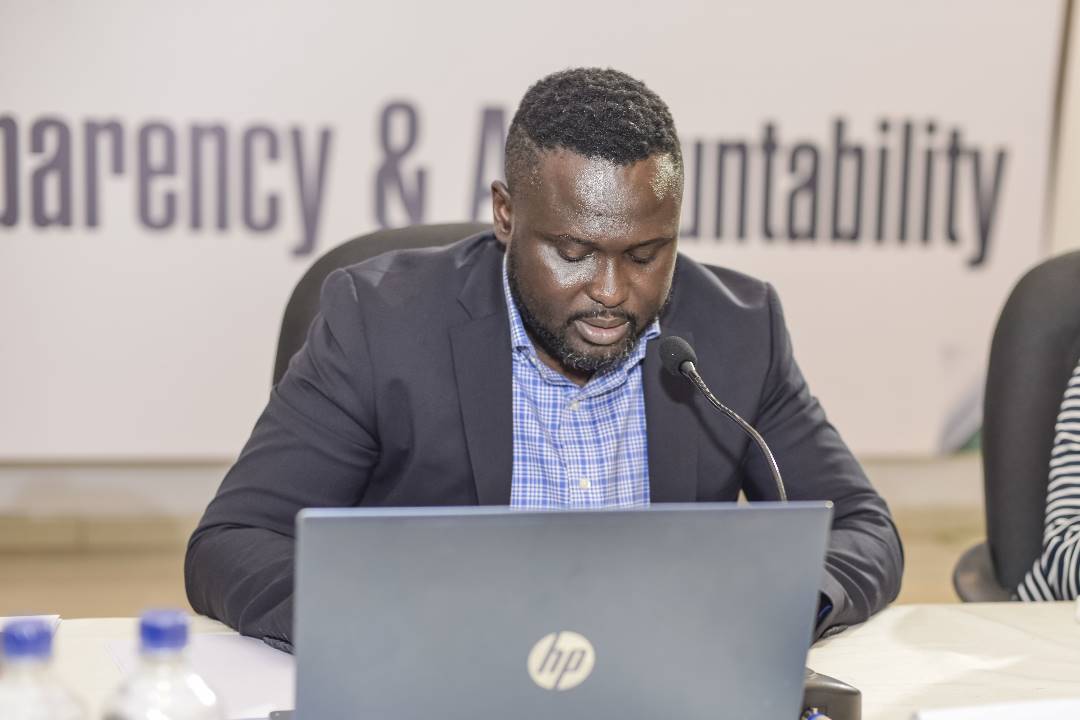By Yunus S Saliu
National Centre for Arts and Culture in conjunction with UNESCO Wednesday Commenced a weeklong training on Intangible Cultural Heritage Community-Based Inventorying training for the Gambian heritage experts, community representatives, and key government technical staff at NaNa Complex Centre, Kanifing
The ongoing Intangible Cultural Heritage (ICH) inventorying training is not limited to theory but as well involves fieldwork on introduction to the 2003 Convention and community-based inventorying and it is divided into three parts – part one, training on community-based inventorying of ICH, part two, engaging the Media: introduction to the 2003 convention and the role of the Media in ICH safeguarding, and the part three is inventorying ICH with communities in The Banjul Area.
Hassoum Ceesay, Director General of the National Centre for Arts and Culture speaking on behalf of the Minister of Tourism and Culture, Honourable Hamat NK Bah, disclosed that in late 2021, said UNESCO earmarked USD50,000 to the NCAC for the implementation of the two yearlong projects under its 2003 Convention titled ‘Strengthening National Capacities for Safeguarding Intangible Cultural for Sustainable Development in The Gambia.’
The project, he stated, aims at supporting The Gambia in its efforts to safeguard its living heritage, under the UNESCO 2003 Convention for the safeguarding of ICH. “The Gambia is a signatory to this Convention and already since 2008 The Gambia and Senegal have inscribed the Kankurang Manding initiatory rite into the List of Intangible Cultural Heritage of Humanity.”
He assured that “in partnership with the NCAC of my Ministry, UNESCO will in the coming two years provide technical support and develop a capacity building programme based on the needs identified, in collaboration with partners, during a Needs Assessment carried out in The Gambia in 2015.”
The next two years, he said, will be a busy period for all, especially the members of the NCAC technical team, stakeholders participating in the project, and the future ICH trainers selected from this training.
Hassoum Ceesay, on behalf of the Minister of Tourism and Culture, commended the UNESCO Culture Team in Dakar for their support always and as well the consultant together with the core technical team and experts.
Dimitiri Sanga, Director of UNESCO Regional Office West Africa-Sahel addressed the gathering online.
He said UNESCO having its regional office in Dakar has been supporting and accompanying the works to safeguard its cultural heritages and iterated that the project, Intangible Cultural Heritage Community-Based Inventorying is a two years project
He noted that the project among other activities will build the capacity of twenty heritage experts and representatives of communities to better the inventorying of the ICH-based community including Banjul Areas and West Coast Region who will be fully engaged in this process as they have selected six elements of the ICH.
He added that they will be at the center of the pilot in inventorying activities, technically, supported by the experts who have been trained to start today.
In the coexistence and value of the ICH to be protected, he pointed out that the targeting of the media experts and journalists who specialize in culture as they will be the ambassador special heritages of the culture is important.
Maimuna Sidibeh, acting Secretary General of UNESCO NATCOM The Gambia, thanked UNESCO Dakar Office for providing The Gambia this unique training opportunity, which is of course, through the able leadership of Mr Hassoum Cessay and his formidable team.
She noted that the ongoing training will wrap up the final curtain of the training project on ‘Strengthening national capacities for safeguarding intangible cultural heritage (ICH) and contributing to sustainable development in The Gambia: “specifically the training and fieldwork sessions of the ICH Community-Based Inventorying which was launched on April 1 this year.”
She enjoined everyone to understand that cultural heritage does not end at monuments and collections of objects “but also includes traditions or living expressions inherited from our ancestors and passed on to our descendants, such as oral traditions, performing arts, social practices, rituals, festive events, knowledge, practices concerning nature and the universe as well as the knowledge and skills to produce traditional crafts.”
She, however, describe ICH as an important factor in maintaining cultural diversity in the face of growing globalization while he commended the National Commissions for UNESCO for this significant initiative.
“NATCOMS are the interface between the Member States, the Secretariat, field units, and various partners of civil society, under the mandate entrusted to them,” he explained.
In his opening remarks, Fafa Mbye, Board Chairman of the NCAC noted that the training is an omnibus activity that comprised a series of three different training/capacity building sessions “pilot field inventory activities, and field activity reporting.”
He, however, acknowledged the presence of all participants and sought their strong participation in all the sessions, while he thanked the UNESCO consultants and officials for believing in the ability of NCAC to deliver this multi-pronged project.




